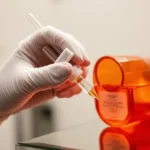Addiction is more than just a habit—it physically changes the brain. Substances like alcohol, opioids, and stimulants alter the way the brain processes reward, motivation, and stress. These changes are why recovery takes time, and why individuals often wonder how long it takes to “rewire” the brain after addiction. While there is no single timeline, research shows that the brain is capable of healing, and recovery is absolutely possible.
What Addiction Does to the Brain
When a person repeatedly uses addictive substances, the brain’s reward system becomes overstimulated. Dopamine levels surge, creating intense feelings of pleasure that reinforce drug-seeking behavior. Over time, the brain adapts by reducing its natural dopamine production and weakening normal reward responses. This rewiring makes it difficult to feel joy from everyday experiences and strengthens the cycle of addiction.
The Early Stages of Brain Healing
The first few weeks of sobriety often bring withdrawal symptoms, cravings, and mood instability. During this period, the brain is working to restore balance. While uncomfortable, these early changes mark the beginning of healing. Supportive care, therapy, and in some cases medication can help individuals stay grounded while their brains begin adjusting to life without substances.
How Long Rewiring Takes
Recovery timelines vary depending on the individual, the substance used, and the length of addiction. Generally, brain chemistry can take months to stabilize. Studies suggest:
- 30–90 days: Improved sleep patterns, mood regulation, and reduced cravings often begin.
- 6 months: Cognitive function, such as memory and focus, improves noticeably.
- 1 year and beyond: The brain continues to build healthier pathways, making sobriety feel more natural and sustainable.
While these milestones provide a framework, it’s important to remember that healing is not linear. Setbacks may happen, but consistent treatment and support reinforce long-term change.
The Role of Treatment in Brain Recovery
Professional care can make a significant difference in the recovery process. Structured programs that include therapy, peer support, and medical oversight provide the stability and tools necessary for lasting change. For those exploring options, comprehensive addiction treatment Washington programs can help individuals not only achieve sobriety but also support the brain’s journey toward healing.
A Lifelong Process of Growth
Rewiring the brain from addiction is not about flipping a switch—it’s about steady progress. With time, support, and persistence, people in recovery can rebuild healthy brain function and create new habits that support long-term well-being. The journey may take months or even years, but every step forward strengthens the foundation for a healthier life.














Leave a comment